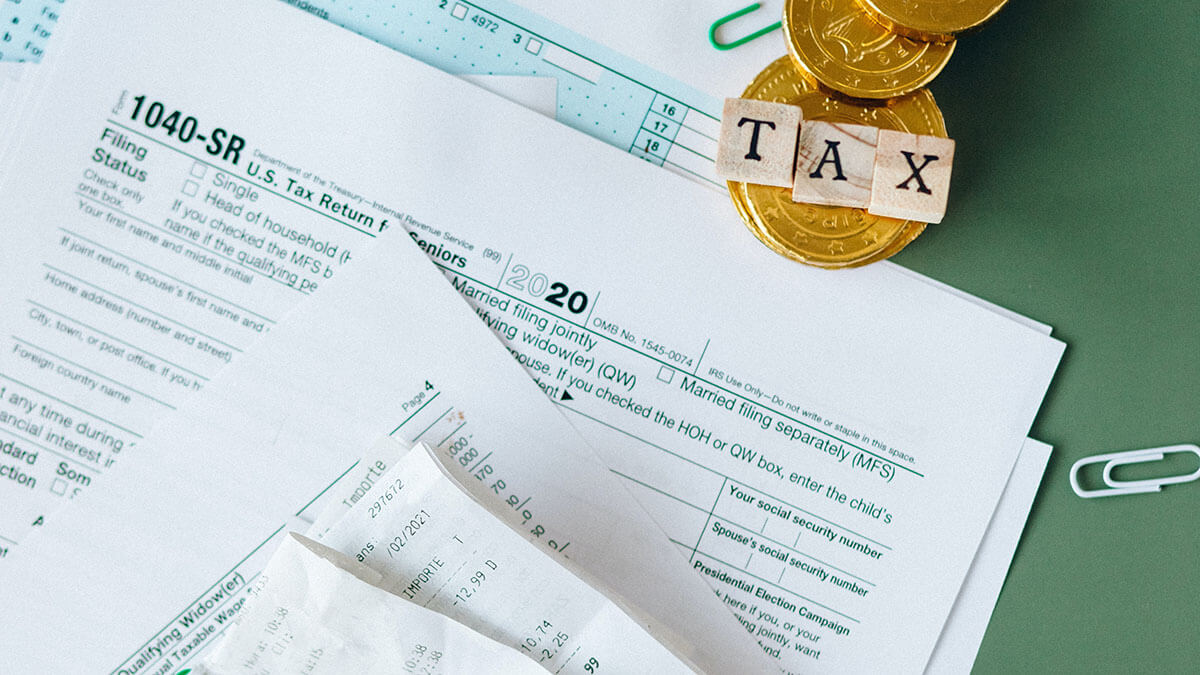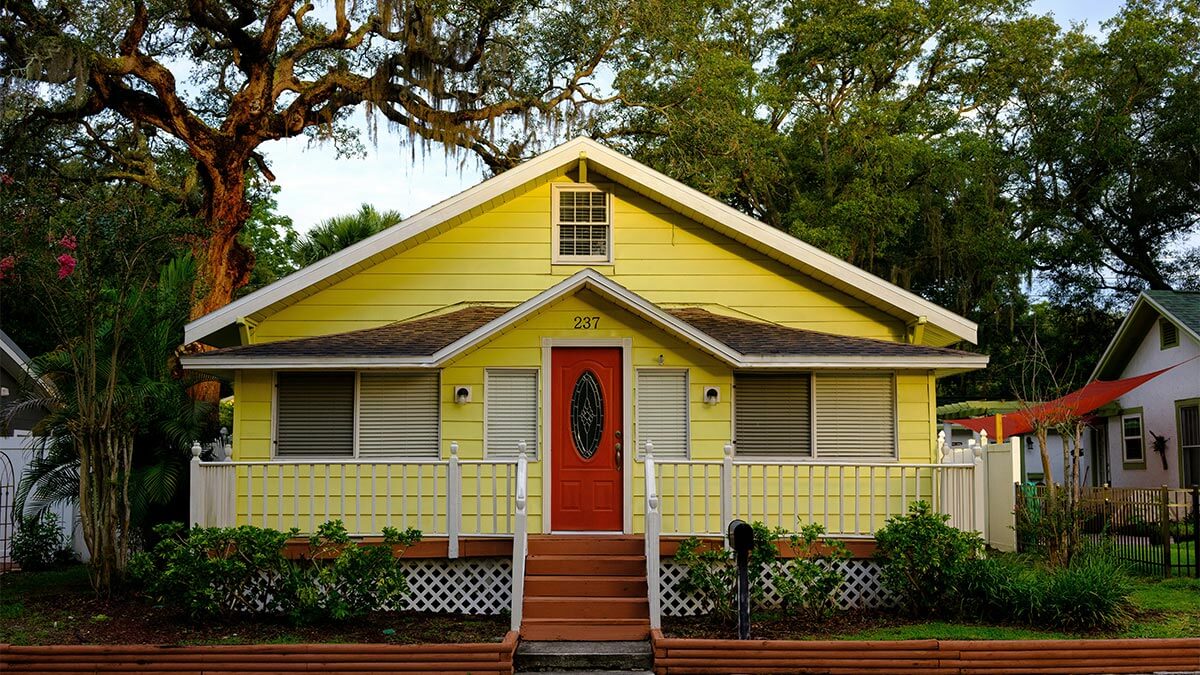When it comes to selling your home, the IRS isn’t something you can ignore. Many homeowners are surprised by how much taxes can affect their profits. Whether you’re selling a house to downsize, upgrade, or relocate, it’s crucial to understand the potential tax implications. These taxes don’t have to catch you off guard, though! With the right preparation, you can avoid any nasty surprises when tax season rolls around.
The IRS views the sale of a home as a potentially taxable event. However, not every home sale results in owing taxes. There are exclusions and rules in place that can minimize or even eliminate what you owe. But if you’re not careful, you could face higher taxes than you expect.
The key is to know what to expect ahead of time, including both federal and state tax considerations. By understanding the rules, you’ll be better prepared and more confident during the selling process. If you’re unsure about anything, talking to a tax professional can help you navigate these complex details.
Ready to sell your home fast? iBuyer makes the process easy while ensuring you’re financially prepared. Get a no-obligation offer today and avoid the tax headache.
Compare Cash Offers from Top Home Buyers. Delivered by Your Local iBuyer Certified Specialist.
One Expert, Multiple Offers, No Obligation.
Taxes and Home Selling
- Capital Gains: Turning Your Home Sale into a Smart Move
- Boosting Your Profit: Key Factors That Influence Capital Gains
- Investment Properties and Second Homes: Taxing Times Ahead
- Maximizing Your Deductions: Special Rules to Know
- State Real Estate Taxes: The Hidden Costs of Selling
- Reilly’s Two Cents
- Wrapping It Up: Tax Planning for a Successful Home Sale
- FAQs on Home Selling and Tax Liabilities
Capital Gains: Turning Your Home Sale into a Smart Move
Selling your home can lead to a substantial profit, but it can also come with capital gains taxes. So, what exactly is capital gains tax? In simple terms, it’s the tax you pay on the profit you make from selling an asset, like a house, that has appreciated in value. If your home has increased in price since you bought it, that gain could be taxable.
Luckily, the IRS offers a way for many homeowners to avoid or reduce these taxes through the Primary Residence Exclusion. If the home you’re selling is your main residence, you might be able to exclude a significant portion of your capital gains from taxes. For single filers, the exclusion allows you to shield up to $250,000 of your profit, while married couples filing jointly can exclude up to $500,000. This can be a game changer for sellers looking to maximize their profit.
To qualify for this exclusion, you must pass two key tests: the Ownership Test and the Use Test. The ownership test requires you to have owned the home for at least two of the last five years. Meanwhile, the use test requires that you’ve lived in the home as your primary residence for at least two out of those five years. If you meet both tests, you can breathe easier knowing that you won’t owe taxes on a huge chunk of your home sale profits.
If you own more than one property, you’ll also want to understand capital gains taxes on a second home, which don’t qualify for the same exemptions as a primary residence.
Boosting Your Profit: Key Factors That Influence Capital Gains
When selling your home, the key to keeping more of your profit is understanding how to reduce the amount of capital gains you owe. Two major factors that can influence your capital gains are your cost basis and your selling costs.
First, let’s talk about your cost basis. This is the amount you initially paid for your home, plus any significant home improvements you’ve made over the years. Improvements like adding a new roof, upgrading your kitchen, or installing energy-efficient windows can all increase your cost basis. The higher your cost basis, the lower your taxable gain will be when you sell your home. So, keeping detailed records of all your home improvements is crucial for reducing your taxes.
Then, there are selling costs. Expenses such as real estate agent commissions, legal fees, and title insurance can also lower your capital gains. These costs are subtracted from the sale price of your home before calculating your gain, which means less profit to be taxed. It’s a good idea to keep track of every expense related to selling your home because they can help reduce the taxes you owe.
By understanding these factors, you can make smarter decisions that will help you keep more of your hard-earned money after selling your home.
Investment Properties and Second Homes: Taxing Times Ahead
If you’re selling an investment property or a second home, the tax rules are quite different from those for your primary residence. Unfortunately, you won’t qualify for the Primary Residence Exclusion—meaning all of your profit is subject to capital gains tax. This can be a big hit for sellers, especially if the property has appreciated significantly over the years.
However, there is a way to defer paying those taxes through something called a 1031 Exchange. This tax-deferment strategy allows you to sell one investment property and reinvest the proceeds into another similar property without paying capital gains taxes immediately. It’s a great tool for real estate investors looking to keep their money working for them instead of handing it over to the IRS.
There are a few important rules you need to follow to qualify for a 1031 Exchange. First, the property you’re reinvesting in must be of “like-kind,” meaning it has to be another investment or business property. Second, you’ll need to identify the new property within 45 days of the sale and complete the purchase within 180 days. If done correctly, you can continue growing your real estate portfolio while deferring taxes on your gains.
If a 1031 Exchange isn’t an option for you, it’s essential to plan ahead for the taxes you’ll owe. Consulting a tax advisor can help you explore other strategies to minimize your tax liability.
Maximizing Your Deductions: Special Rules to Know
When selling your home, you want to make sure you’re not leaving any money on the table. Fortunately, there are a few deductions and special rules that can help lower your tax bill. One of the most valuable areas to explore is home improvement deductions. If you’ve made substantial upgrades to your home, such as adding a new bathroom or modernizing the kitchen, these costs can reduce your taxable capital gains by increasing your cost basis. Remember, though, only improvements—not repairs—qualify for this benefit.
Another special situation applies when you’re selling an inherited property. These properties come with their own set of tax rules that can actually benefit you as a seller. When you inherit a home, the IRS allows you to use the home’s fair market value at the time of inheritance as your cost basis, not what the original owner paid for it. This step-up in basis can drastically reduce the capital gains tax you might owe if the home has appreciated over time. This means that, when it comes time to sell, you may pay much less in taxes than you’d expect.
Understanding these deductions and special rules can go a long way toward keeping your tax bill down when selling your home or an inherited property. As always, having good records and seeking advice from a tax professional can ensure you don’t miss out on any opportunities to save.
State Real Estate Taxes: The Hidden Costs of Selling
When selling a home, most homeowners focus on federal taxes, but state real estate taxes can also take a bite out of your profit. Depending on where you live, your state may impose additional real estate transfer taxes or sales taxes on property sales. These are often called transfer taxes, and they vary widely from state to state.
Some states charge a flat rate, while others calculate the tax as a percentage of the home’s sale price. For example, in New York, transfer taxes can reach up to 2% of the selling price, which can be a significant amount if you’re selling in a high-value area. Other states, like California, may have both state and local transfer taxes, further increasing the costs. These hidden taxes can come as a surprise to many sellers who are unaware of their state’s rules.
It’s important to factor these potential costs into your sale plan so they don’t catch you off guard at closing. While some of these taxes are unavoidable, knowing they exist helps you prepare better financially. Working with a real estate expert familiar with your state’s regulations can help you estimate and plan for these costs upfront.
Reilly’s Two Cents
As a real estate professional, I’ve seen firsthand how confusing the tax implications of selling a home can be. Many homeowners end up blindsided by unexpected taxes, but it doesn’t have to be that way. With a little preparation and knowledge, you can avoid these surprises and come out ahead. Here are three key pieces of advice that can help make your home sale as tax-efficient as possible:
- Tip 1: Keep detailed records of all home improvements. Whether it’s a new roof or a kitchen renovation, these improvements increase your cost basis and can significantly reduce your taxable capital gains. It’s easy to overlook, but keeping track of your expenses could save you a lot when tax season rolls around.
- Tip 2: Understand the residency rules. To take full advantage of the Primary Residence Exclusion, make sure you’ve lived in your home for at least two of the last five years. This simple rule could save you from paying taxes on up to $250,000 (or $500,000 for married couples) of your home’s profit.
- Tip 3: If you’re selling an investment property, consider a 1031 Exchange. This powerful tool allows you to defer capital gains taxes by reinvesting the proceeds into another investment property. It’s a great way to keep growing your portfolio while keeping your taxes in check.
Selling your home doesn’t have to be a tax nightmare. With these strategies, you can protect your profits and reduce your tax burden. Whether you’re selling a primary residence or an investment property, knowing the rules will help you make smarter decisions.
Wrapping It Up: Tax Planning for a Successful Home Sale
Selling a home comes with plenty of moving parts, and taxes are one of the biggest factors to consider. Whether it’s capital gains, state transfer taxes, or deductions for home improvements, having a solid tax plan in place is key to keeping more of your hard-earned profit. By knowing the rules, like the Primary Residence Exclusion and how to adjust your cost basis, you can minimize the taxes you owe.
If you’re selling an investment property or a second home, tools like the 1031 Exchange offer ways to defer taxes and keep your investment growing. But no matter what type of property you’re selling, keeping detailed records of your improvements and expenses can save you from headaches later.
In the end, the best strategy is to plan ahead. Don’t wait until tax time to figure it all out. The earlier you start preparing, the more control you’ll have over your financial outcome. And remember, working with a tax professional or real estate expert can ensure you’re making the best decisions to protect your profit.
Ready to sell your home and want to be prepared for taxes? iBuyer is here to guide you through the process, ensuring a smooth sale with no surprises. Get a no-obligation offer today and sell with confidence!
Instant Valuation, Confidential Deals with a Certified iBuyer.com Specialist.
Sell Smart, Sell Fast, Get Sold. No Obligations.
FAQs on Home Selling and Tax Liabilities
Not always! If the house is your primary residence, you may qualify for the Primary Residence Exclusion, which allows you to exclude up to $250,000 (or $500,000 for married couples) of your profit from capital gains tax. If your gain exceeds that, or if it’s not your primary residence, you might owe taxes on the remaining amount.
The Primary Residence Exclusion is a tax break for homeowners selling their main home. To qualify, you must have owned and lived in the home for at least two out of the last five years before selling. This exclusion can save you from paying taxes on a big portion of your home sale profit.
Yes, but only certain home improvements qualify. Permanent upgrades like a new roof, major renovations, or installing energy-efficient windows can increase your cost basis, which reduces the taxable amount of your capital gains.
Second homes and investment properties don’t qualify for the Primary Residence Exclusion, so all your profit may be subject to capital gains tax. However, if you sell an investment property, you can use a 1031 Exchange to defer those taxes by reinvesting in another property.
When you sell an inherited property, the IRS allows you to use the home’s fair market value at the time of inheritance as your cost basis, which can significantly reduce the capital gains tax you owe. This is known as a “step-up in basis.”
Reilly Dzurick is a seasoned real estate agent at Get Land Florida, bringing over six years of industry experience to the vibrant Vero Beach market. She is known for her deep understanding of local real estate trends and her dedication to helping clients find their dream properties. Reilly’s journey in real estate is complemented by her academic background in Public Relations, Advertising, and Applied Communication from the University of North Florida. This unique combination of skills has enabled her to seamlessly blend traditional real estate practices with cutting-edge marketing strategies, ensuring her clients’ properties gain maximum visibility and sell quickly.
Reilly’s career began with a strong foundation in social media marketing and brand communications. These skills have proven invaluable in her real estate practice, allowing her to offer innovative marketing solutions that set her apart in the industry. Her exceptional ability to understand and meet clients’ needs has earned her a reputation for providing a smooth and satisfying transaction process. Reilly’s commitment to client satisfaction and her innovative approach have garnered her a loyal client base and numerous referrals, underscoring her success and dedication in the field.
Beyond her professional achievements, Reilly is passionate about the Vero Beach community. She enjoys helping newcomers discover the charm of this beautiful area and find their perfect home.
Outside of work, she loves exploring Florida’s stunning landscapes and spending quality time with her family. Reilly Dzurick’s combination of expertise, marketing savvy, and personal touch makes her a standout real estate agent in Vero Beach, Florida.




